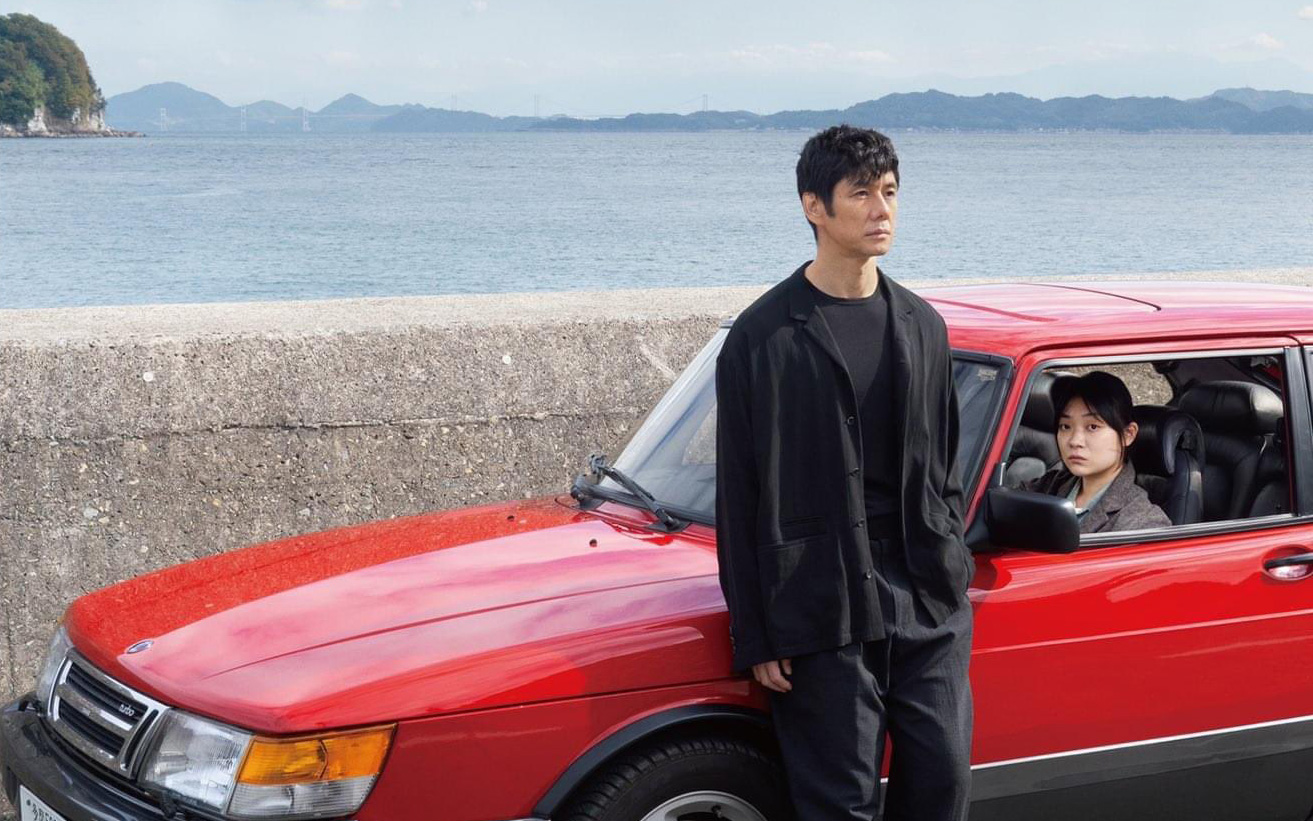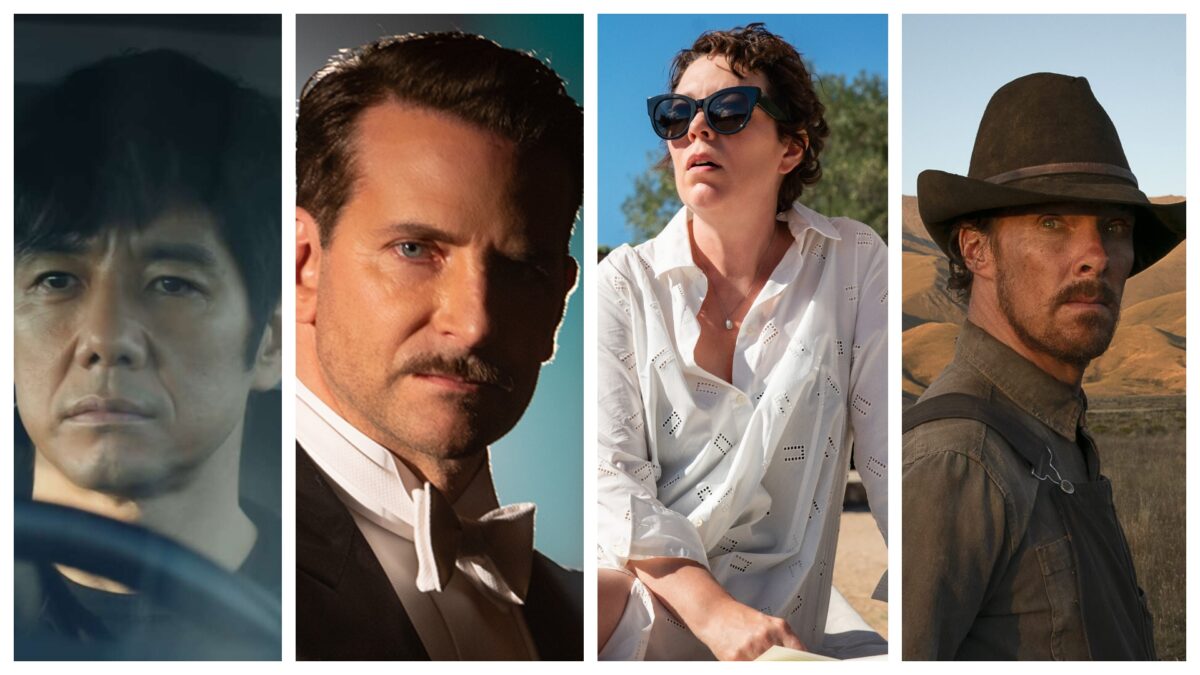The Oscar nominees revealed just three weeks ago point in a direction where the Academy hasn’t really gone before. The films nominated aren’t necessarily box office darlings (not even Dune made it into the green stateside), nor are they franchises or revives (save for West Side Story). Rather, this year’s nominees revolve around subtlety to tell their stories, requiring viewers’ patience and their “dismissal” hat to be hung at the door. They aim to challenge the viewer, which is what any great film should do – test the boundaries of not only what you’re comfortable with, but also push the limits of your empathy. And perhaps this is why this year’s Oscar nominees are not necessarily quiet, but sensitive in their approach of telling their stories.
Let’s start with the first and biggest example: Drive My Car – Japan’s three-hour Oscar submission that’s an adaptation of Murakami whose opening credits don’t even appear until 50 minutes in – is this year’s Oscar favorite just behind The Power of the Dog. The film centers around a stage director (Hidetoshi Nishijima) who loses his wife and accuracy of vision and is forced to hire a driver (Tôko Miura) to transport him to and from rehearsal. At first tricked for self-importance, Drive My Car’s slow and quiet unraveling of its story of empathy thaws and rises to the surface during its lengthy run-time. Perhaps this is the function of the plot – it acts subtly and un-detectable, that its conflict only barely reveals itself. Their connection at first comes off stand-off-ish, but how the film employs the venue of a car for its subjects to be vulnerable with each other only aids the film’s empathy.
But the theme of empathy is not only a foreign affair: The Lost Daughter also maintains roots in its approach to intimate filmmaking. It’s another film whose conflict is not strictly overt, but requires patience and attention to figure out. It centers around a college professor (Olivia Colman) who’s apparently lost touch with her daughters and confronts her unsettling past when she encounters a new mother (Dakota Johnson) and her daughter. You assume her daughters are dead, or even worse, assume she’s at fault. But again, there’s only a very fine line of conflict in the film, most of which is worn and communicated via Colman’s performance. It is not one that is externalized, but internalized. The film’s story may as well have started before the beginning of the film, as that’s what’s implied: the thrusting of Colman’s character into a world she rejects is not necessarily shown, as the film forces the audience to be in Colman’s shoes in order to understand.
But perhaps the most likely film to win the top prize this year is The Power of the Dog, Jane Campion’s period piece western centering around a rugged cowboy (Benedict Cumberbatch) whose world is shaken up when his brother (Jesse Plemmons) brings home a new wife (Kirsten Dunst) and kid (Kodi Smit-Mcphee). The slow-burn conflict focuses on the empathy (or lack thereof) between Cumberbatch and Smit-McPhee. Clearly a homosexual, Smit-McPhee’s character serves to hit Cumberbatch’s vulnerable spots in the most cunning of ways, acting on his flaw of queer repression to change him over a period of time. He does so effectively, but again in such a minute way, externalized only through glances of the eyes and the softest of touches.
The inclusion of these films, and as frontrunners no less, seems to have Twitter scrambling to argue that the Academy is in fact “changing,” but maybe they’re rightfully so. Ever since 2017, the Academy has been inviting younger, more diverse members to join, and perhaps it’s only taken five years in order to see the result. The Academy has nominated “art” films before, but they’ve never been, for lack of better words, this quiet. Take a look back at the arthouse films nominated in the past twenty years. Crash was most definitely the surprise indie to win, but definitely wasn’t subtle in its message. Moonlight was definitely a step forward for the Academy, but that film was driven more by its externalization of empathy more so than subtlety. Roma was an exceptionally well-done film, but its ingenious indulgence of directorial choices and set pieces make it not very self-effacing.

This year’s Oscar nominees also fuel a fire to a debate that’s been resurfacing for a couple years – “why are movies so long nowadays?” With the inclusion of lengthy films such as Drive My Car (2 hours and 59 minutes), Nightmare Alley (2 hours and 30 minutes), and Licorice Pizza (2 hours and 13 minutes), the general public will likely begin to equate awards worthiness and critical acclaim with length. It’s almost as if a movie has to be long to get any awards recognition. But there are two sides to that argument.
The Academy tends to equate length with “seriousness,” indicating craft and skill. The shortest film to ever win best picture is Marty (1 hour and 31 minutes), but even that was an anomaly – it was a comedy, which tend to be shorter (and only four of which, arguably, have ever won best picture), with the average best picture nominee length from the past 20 years easily above the two-hour mark. But is that a necessary pre-requisite? Must a film be of a certain length to capture the attention of the academy?
The other side of the argument is that subtlety does often require patience, at least in terms of a feature length film. In order for a director to not be strictly overt and obvious in telling a story, the film almost needs to challenge the audience in that sense. It needs to bring about and require active viewership. Sure, it can be a film that actively tells you a story while the audience passively receives, but that’s exactly what it will be. And there’s nothing wrong with that. But a “smart” film, the kind that brings about a revelatory experience, requires an active audience. A film is more effective when both sides are actively participating, and the Oscar nominees this year embody that. It’s not to say so much that they are “long,” but they’re films of considerable length in order to accurately “challenge” an audience by asking for attentive viewership. One can argue that the Academy only nominates long films, but another can just as accurately say they nominate films that challenge us.
And when the length is rewarding, those are the ones that often stick with the viewer. The problem isn’t if a film is three hours. What matters is if it feels like three hours. If done effectively, if the writer has done their job, length is secondary. It’s when the narrative drifts out to sea that one starts to notice the length. Seven Samurai is three and a half hours long, but gets to and sticks with the conflict in the first minute.
But for all intents and purposes – yes, these movies are long. But they’re only long because they want to challenge you. It is the nature of filmmaking to actively challenge an audience, to force them outside of their comfort zone. It’s the sheer audacity to transcend what’s possible in film and push the limits of human empathy. Because subtlty drives this year’s Oscar nominees, then they just might be the next phase in film evolution to raise the art to a higher plane of existence.
